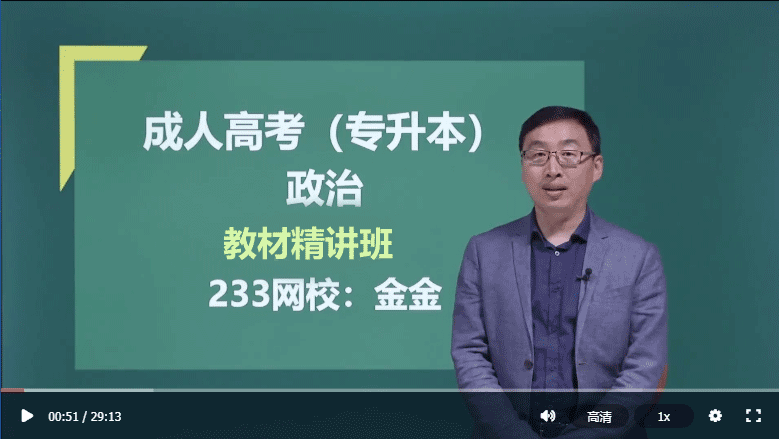2008хЙДцшфИхцЌшБшЏщЋщЂшЏхКхЎцщ
ууallatonceфИфИх
ууasamatteroffactфКхЎфИ
ууallmannerofхчЇхц Зч
ууasyetхАчАхЈфИКцЂ
ууasithappensцАхЅНчЂАхЗЇ
ууallbutх фЙяМхЗЎфИхЄ
ууallthesameхАНчЎЁхІцЄяМфЛчЖ
ууasitisфКхЎфИ
ууasfarasтІisconcernedхАБтІтІшшЈ
ууalaborofloveхПчц цПхчфК
ууatouchofхАшЎИяМфИчЙ
ууabatteryofфИшПфИВч
ууahostofхЄЇщяМшЎИхЄ
ууagreatmanyхОхЄ
ууallthewayхЎхЎх Јх Ј
ууallofasuddenчЊчЖ
ууagooddealщхИИяМцх ЖяМхЄЇщ
ууastreamofфИшПфИВяМфИчГЛх
ууabatchofфИцЙ
ууasamatterofcourseфНфИКчцхНчЖчфК
ууbetteroffчцДЛшОфМшЃ
ууbodyandsoulх ЈхПх ЈцхА
ууfarfromшПшПфИяМхЎх ЈфИцЏ
ууjudgingfromц ЙцЎтІтІхЄц
ууasalastresortфНфИКхццЎЕ
ууmanyaшЎИхЄ
ууmuchlessцДшАфИфИ
ууmaywellхОхЏшН
ууmightaswellхфИхІ
ууnomoreтІthanтІфИцЏтІтІцДхЄ
ууnodoubtшЏхЎхА
ууnowthatцЂчЖ
ууnotintheleastфИчЙфЙфИ
ууnottomentionцДфИчЈшЏД
ууonceandforallхНЛхКхА
ууotherthanщЄфК
ууpriortoхЈтІтІфЙх
ууonceinawhileхЖхА
ууrightawayчЋхЛ
ууsideeffectхЏфНчЈ
ууsomuchsothatхАхІцЄчхАцЅфЛЅшГфК
ууsotospeakхЏфЛЅшПфЙшЏД
ууspeakingofшЏДхА
ууscoresofхЄЇщяМшЎИхЄ
ууtheschemeofthingsфКчЉчц МхБ
ууtimeandagainфИцЌЁхфИцЌЁ
ууthebreathoflifeчцДЛфИфИхЏчМКчфИшЅП
ууthankstoчБфКяМхЙИфК
ууwalkoflifeшЁфИяМшфИяМчЄОфМщЖхБ
ууwhenitcometoтІтІшЏДхАяМфИцІцЖх
ууwhereтІisconcernedхАБтІтІцЅшЏД
уухЈшЏчцЖцччЈцГ
ууaшЁЈчЄКчЛхИИчцДЛфЙ цЏцЇчхЈфНцчАхЈччЖцу
ууIgotoworkbybikeeverymorning.ццЏхЄЉцЉфИщЊшЊшЁшНІфИчу
ууHelivesinShanghai.фЛфНхЈфИцЕЗу
ууSheiseighteenyearsold.хЅЙ18хВу
ууbшЁЈчЄКфИЛшЏх ЗхЄчцЇц МучЙхОхшНхчу
ууShelikesmuisc.хЅЙхцЌЂщГфЙу
ууShehasblueeyes.хЅЙхфИхшчМчу
ууHespeaksEnglishaswellashespeakhisownlanguage.фЛшЏДшБшЏшЏДхОхфЛчцЏшЏфИц ЗчхЅНу
ууCшЁЈчЄКхЎЂшЇфКхЎхцЎщччу
ууTheearthgoesroundthesun.хАччЛхЄЊщГшНЌу
ууTheHuangheRiverrunsintotheBohaiSea.щЛцВГцЕх ЅцИЄцЕЗу
ууdшЁЈчЄКцшЇхЎцшЎЁхшІхччхАцЅчхЈфНяМхЊgoяМcomeяМstartяМleaveяМstayяМarriveяМreturnяМbeginяМbeчхЈфНяМяМхИИхИІцшЁЈчЄКхАцЅцЖщДччЖшЏухІяМ
ууThebusstartsatfiveoтclocktomorrowmorning.х Ќх БцБНшНІхАфКцхЄЉцЉфИфКчЙхМхКу
ууWhendoesthetrainarriveяМчЋшНІфЛфЙцЖххАяМ
ууSchoolbeginsthedaysftertomorrow.хІц ЁххЄЉхМхІу
ууTheshopclosesat8intheevening.шПфИЊххКцфИ8чЙх ГщЈу
ууeхЈцЖщДуцЁфЛЖчЖшЏфЛхЅфИшЁЈчЄКхАцЅчхЈфНухІяМ
ууWhenhearrivesяМheтlltellusaboutit.фЛхАцЅцЖяМфМцшПфЛЖфКчццц хЕхшЏцфЛЌу
ууIfherunsяМheтllgetthereintime.фЛхІцшЗхЛяМхАБхЏфЛЅхцЖхАшООщЃщу
ууfшЁЈчЄКцЖщДчцчхЈфНу
ууHerecomesthebus.х Ќх БцБНшНІцЅфКу
ууTheregoesthetell.щхфКу
ууIdeclarethemeetingopen.чАхЈцхЎЃхИхМфМу
ууasamatteroffactфКхЎфИ
ууallmannerofхчЇхц Зч
ууasyetхАчАхЈфИКцЂ
ууasithappensцАхЅНчЂАхЗЇ
ууallbutх фЙяМхЗЎфИхЄ
ууallthesameхАНчЎЁхІцЄяМфЛчЖ
ууasitisфКхЎфИ
ууasfarasтІisconcernedхАБтІтІшшЈ
ууalaborofloveхПчц цПхчфК
ууatouchofхАшЎИяМфИчЙ
ууabatteryofфИшПфИВч
ууahostofхЄЇщяМшЎИхЄ
ууagreatmanyхОхЄ
ууallthewayхЎхЎх Јх Ј
ууallofasuddenчЊчЖ
ууagooddealщхИИяМцх ЖяМхЄЇщ
ууastreamofфИшПфИВяМфИчГЛх
ууabatchofфИцЙ
ууasamatterofcourseфНфИКчцхНчЖчфК
ууbetteroffчцДЛшОфМшЃ
ууbodyandsoulх ЈхПх ЈцхА
ууfarfromшПшПфИяМхЎх ЈфИцЏ
ууjudgingfromц ЙцЎтІтІхЄц
ууasalastresortфНфИКхццЎЕ
ууmanyaшЎИхЄ
ууmuchlessцДшАфИфИ
ууmaywellхОхЏшН
ууmightaswellхфИхІ
ууnomoreтІthanтІфИцЏтІтІцДхЄ
ууnodoubtшЏхЎхА
ууnowthatцЂчЖ
ууnotintheleastфИчЙфЙфИ
ууnottomentionцДфИчЈшЏД
ууonceandforallхНЛхКхА
ууotherthanщЄфК
ууpriortoхЈтІтІфЙх
ууonceinawhileхЖхА
ууrightawayчЋхЛ
ууsideeffectхЏфНчЈ
ууsomuchsothatхАхІцЄчхАцЅфЛЅшГфК
ууsotospeakхЏфЛЅшПфЙшЏД
ууspeakingofшЏДхА
ууscoresofхЄЇщяМшЎИхЄ
ууtheschemeofthingsфКчЉчц МхБ
ууtimeandagainфИцЌЁхфИцЌЁ
ууthebreathoflifeчцДЛфИфИхЏчМКчфИшЅП
ууthankstoчБфКяМхЙИфК
ууwalkoflifeшЁфИяМшфИяМчЄОфМщЖхБ
ууwhenitcometoтІтІшЏДхАяМфИцІцЖх
ууwhereтІisconcernedхАБтІтІцЅшЏД
уухЈшЏчцЖцччЈцГ
ууaшЁЈчЄКчЛхИИчцДЛфЙ цЏцЇчхЈфНцчАхЈччЖцу
ууIgotoworkbybikeeverymorning.ццЏхЄЉцЉфИщЊшЊшЁшНІфИчу
ууHelivesinShanghai.фЛфНхЈфИцЕЗу
ууSheiseighteenyearsold.хЅЙ18хВу
ууbшЁЈчЄКфИЛшЏх ЗхЄчцЇц МучЙхОхшНхчу
ууShelikesmuisc.хЅЙхцЌЂщГфЙу
ууShehasblueeyes.хЅЙхфИхшчМчу
ууHespeaksEnglishaswellashespeakhisownlanguage.фЛшЏДшБшЏшЏДхОхфЛчцЏшЏфИц ЗчхЅНу
ууCшЁЈчЄКхЎЂшЇфКхЎхцЎщччу
ууTheearthgoesroundthesun.хАччЛхЄЊщГшНЌу
ууTheHuangheRiverrunsintotheBohaiSea.щЛцВГцЕх ЅцИЄцЕЗу
ууdшЁЈчЄКцшЇхЎцшЎЁхшІхччхАцЅчхЈфНяМхЊgoяМcomeяМstartяМleaveяМstayяМarriveяМreturnяМbeginяМbeчхЈфНяМяМхИИхИІцшЁЈчЄКхАцЅцЖщДччЖшЏухІяМ
ууThebusstartsatfiveoтclocktomorrowmorning.х Ќх БцБНшНІхАфКцхЄЉцЉфИфКчЙхМхКу
ууWhendoesthetrainarriveяМчЋшНІфЛфЙцЖххАяМ
ууSchoolbeginsthedaysftertomorrow.хІц ЁххЄЉхМхІу
ууTheshopclosesat8intheevening.шПфИЊххКцфИ8чЙх ГщЈу
ууeхЈцЖщДуцЁфЛЖчЖшЏфЛхЅфИшЁЈчЄКхАцЅчхЈфНухІяМ
ууWhenhearrivesяМheтlltellusaboutit.фЛхАцЅцЖяМфМцшПфЛЖфКчццц хЕхшЏцфЛЌу
ууIfherunsяМheтllgetthereintime.фЛхІцшЗхЛяМхАБхЏфЛЅхцЖхАшООщЃщу
ууfшЁЈчЄКцЖщДчцчхЈфНу
ууHerecomesthebus.х Ќх БцБНшНІцЅфКу
ууTheregoesthetell.щхфКу
ууIdeclarethemeetingopen.чАхЈцхЎЃхИхМфМу
чИх ГцЈш
- 2017хЙДцфККщЋшфИхцЌшБшЏшшЏххЙДчщЂфНцчВОщцБцЛ03-28
- 2017хЙДцфККщЋшфИхцЌшБшЏшшЏххЙДчщЂфНцчВОщфЙ03-24
- 2017хЙДцфККщЋшфИхцЌшБшЏшшЏххЙДчщЂфНцчВОщх Ћ03-24
- 2017хЙДцфККщЋшфИхцЌшБшЏшшЏххЙДчщЂфНцчВОщфИ03-24
- 2017хЙДцфККщЋшфИхцЌшБшЏшшЏххЙДчщЂфНцчВОщх 03-24
| ПЮГЬзЈвЕУћГЦ | НВЪІ | дМл/гХЛнМл | УтЗбЬхбщ | БЈУћ |
|---|---|---|---|---|
| гяЮФ(ИпЦ№Еу)ОЋНВАр | ЕЫО§УФ | ЃЄ150 / ЃЄ150 |  |
БЈУћ |
| гЂгя(ИпЦ№Еу)ОЋНВАр | Monica | ЃЄ150 / ЃЄ150 |  |
БЈУћ |
| Ъ§бЇ(ЮФ)ОЋНВАр | ЭѕЗМ | ЃЄ150 / ЃЄ150 |  |
БЈУћ |
| Ъ§бЇ(Рэ)ОЋНВАр | ТогзжЅ | ЃЄ150 / ЃЄ150 |  |
БЈУћ |
| ДѓбЇгяЮФ(зЈЩ§БО)ОЋНВАр | ХЗбєАиСи | ЃЄ150 / ЃЄ150 |  |
БЈУћ |
| гЂгя(зЈЩ§БО)ОЋНВАр | Monica | ЃЄ150 / ЃЄ150 |  |
БЈУћ |
| ИпЕШЪ§бЇ(вЛ)(зЈЩ§БО)ОЋНВАр | ЭѕЬЮ | ЃЄ150 / ЃЄ150 |  |
БЈУћ |
| ИпЕШЪ§бЇ(Жў)(зЈЩ§БО)ОЋНВАр | ТогзжЅ | ЃЄ150 / ЃЄ150 |  |
БЈУћ |
ИЈЕМПЮГЬ
- ИпЦ№Еу-Ъ§бЇ(ЮФЪЗВЦОРр)

- ЭѕЗМРЯЪІ
 УтЗбЪдЬ§
УтЗбЪдЬ§
- ИпЦ№Еу-гЂгя

- MonicaРЯЪІ
 УтЗбЪдЬ§
УтЗбЪдЬ§
- зЈЩ§БО-ДѓбЇгяЮФ

- ХЗбєАиСиРЯЪІ
 УтЗбЪдЬ§
УтЗбЪдЬ§
АрМЖНщЩм
ЬзВЭАќКЌЃКзЈЩ§БОVIPАр/ИпЦ№ЕуVIPАрЃЈКЌОЋНВ+ецЬтНтЮі+ФЃПМЕуЬт)
ЬзВЭгХЪЦЃК1ЁЂЫјЖЈКЫаФПМЕу
2ЁЂПМЧАЗЂЗХ2ЬзЪдЬт
3ЁЂУтЗбжибЇвЛДЮБЃеЯ
ХфЬзЗўЮёЃК1ЁЂУтЗбЬтПт
2ЁЂПЮГЬНВвх+ПЮМўЯТди+вЦЖЏПЮЬУ







 УтЗбЪдЬ§
УтЗбЪдЬ§ 




